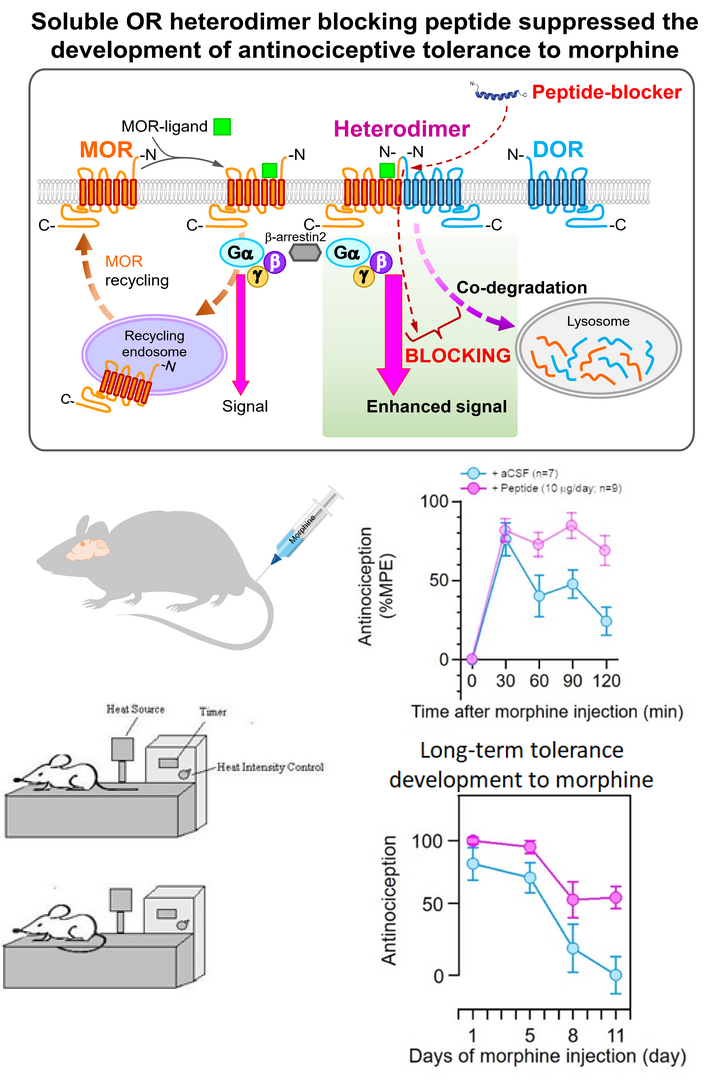Peptide drugs for enhancing opioid analgesia and reducing tolerance development (No. 0221)
|
|
<< Back to all technologies |
Summary
Opioids are essential in clinical pain management, especially for terminal cancer patients. However, long-term opioid therapy can lead to serious clinical and social problems, including tolerance, dependence, abuse, and fatal overdose. A variety of attempts have been made to diversify treatments to increase efficacy and reduce undesirable side effects, but reliable solutions remain elusive. A team of OIST researchers led by Prof. Kusumi has developed a series of peptides that enhance opioid analgesia and suppress development of tolerance. This technology represents an important step toward more effective and safer pain management.
Applications
- Long-term pain management
- Analgesia enhancement
Advantages
- High efficacy
- No or low toxicity
- Validated in vivo in mice
- Allows modification with D-amino acids or BBB shuttle peptides
Technology
The technology is based on the discovery that a class of peptides modulate dimerization of opioid receptors (ORs), a group of inhibitory G protein-coupled receptors (GPCRs) with opioids as ligands. ORs play important roles in the central nervous system, regulating pain perception, hedonic homeostasis, mood, and well-being. Single-molecule imaging and analysis revealed that the peptide-induced suppression of OR dimerization affects the cellular signals and receptor decomposition triggered by opioids, pointing to a novel approach to improving opioid therapy. This resulted in enhanced short-term efficacy and suppressed tolerance development in mice, with no apparent toxicity. The present peptides act on ORs from outside the cell and affect signaling regulation without competing with agonists or inhibiting kinases, which is conducive to successful drug delivery and minimizing side effects. Further peptides were identified that block dimerization of other combinations of ORs, opening up possibilities for interventions in other pathways.
Media Coverage and Presentations
CONTACT FOR MORE INFORMATION
![]() Graham Garner
Graham Garner
Technology Licensing Section
![]() tls@oist.jp
tls@oist.jp
![]() +81(0)98-966-8937
+81(0)98-966-8937





